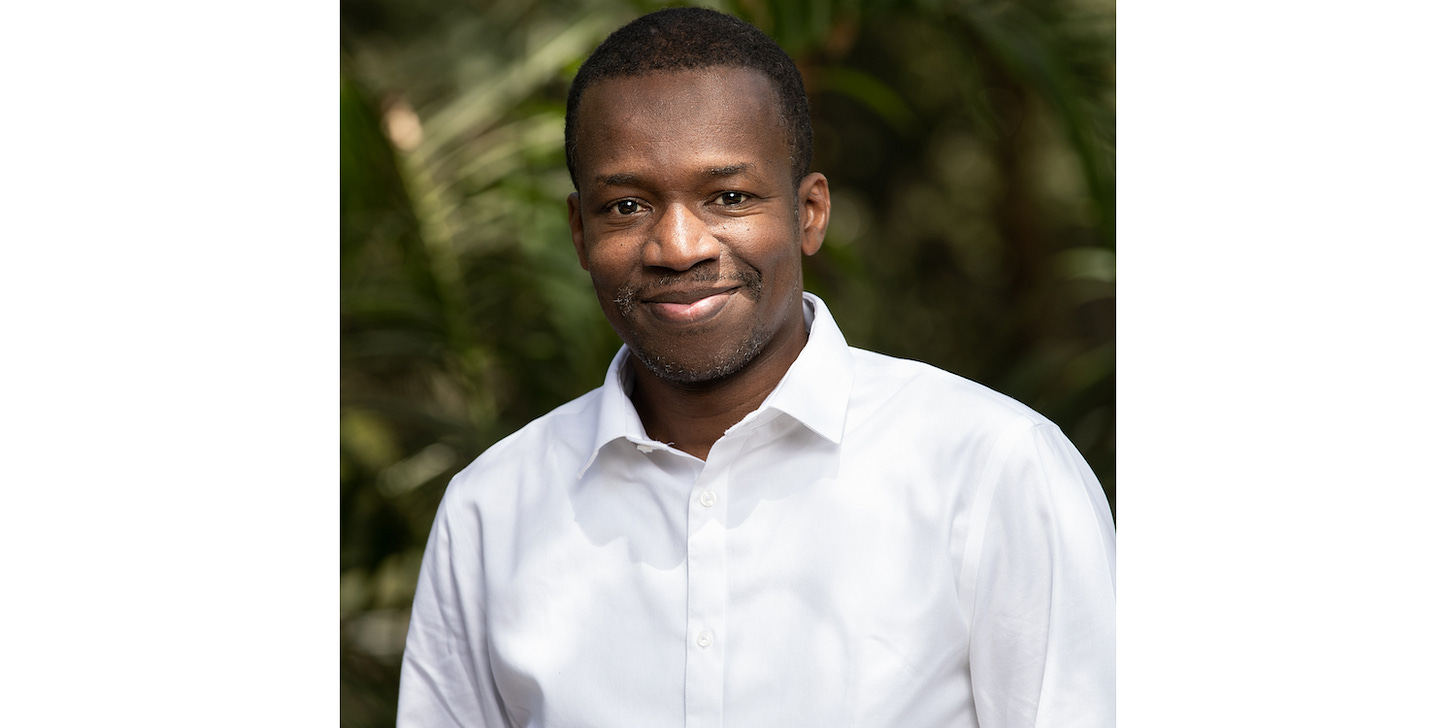This article is part of Fintech Leaders, a newsletter with 55,000+ dreamers, entrepreneurs, investors, and students of financial services. I invite you to share and sign up! And, if you enjoy this conversation, please consider leaving a review on Apple Podcasts, Spotify, or wherever you get your shows so more people can learn from it.
In this episode, I sit down with Tidjane Deme, General Partner of Partech Africa, one of the largest Africa-focused venture capital funds with hundreds of millions of dollars in assets under management. Some of their investments include TradeDepot, Wave, Yoco, Reliance and Nomba.
In this episode, we discuss:
A deep dive into the African Fintech landscape and what he’s learned from the most innovative companies and markets in the continent
“A lot of very strong African players, they're not staying in Africa, they're going global… these FinTech companies in Africa, they're addressing emerging market problems... But then, if they solve them in Nigeria, in South Africa, in Kenya, they're going to try and do this everywhere in the world.”
Fintech Markets in Africa can be categorized into bank-led (e.g. Nigeria) and mobile money-led (e.g. Kenya and Senegal). Nigeria’s fintech landscape has rapidly evolved with its bank-led system, with firms often being more complex than their US or European counterparts and urban adults typically having two or three bank accounts. Similarly, in mobile money-led nations like Kenya and Senegal, APIs and hooks into mobile money infrastructure have enabled the growth of fintech startups, showcasing the region's varied but conducive environments for fintech innovation.
More generally speaking, Fintech in Africa falls mainly into three categories: Consumer Finance, B2B players focusing on Merchant Payment Acceptance, and Infrastructure players. The consumer finance sector initially centered on mobile transfers and has gradually evolved into digital wallets and consumer finance, led by pure digital players. Merchant payment acceptance focuses on enabling digital payments for merchants in a cash-based economy, with businesses increasingly evolving into merchant banking. Infrastructure players, often overlooked due to their B2B focus, build the underlying payment infrastructure upon which other businesses are based.
Fundraising lessons from building one of the first and largest dedicated African VC firms
“There was a lot of education to do throughout this fundraising [in 2016]… Between the moment we started fundraising and our first closing, we pitched 360 investors to achieve our first closing. About 20-25 of them joined... It took about one year and a half to get to the first closing. This might sound long, but it was deemed, in Africa back then, really a world-shattering record.”
Tidjane and Partech Africa Co-Founder, Cyril Collon, had two decades of experience in African tech when they launched their first Fund, but they had no experience in venture capital. Despite initial challenges and having to pitch to over 360 investors, they managed to close their first round of funding in a year and a half - a record-breaking achievement in the African tech landscape. This required extensive data collection and analysis to convince investors about the potential of the African tech ecosystem.
Since then, the African fintech revolution has been fueled by big increase of venture capital dollars being invested in over 30 of the 54 African nations. This has significantly increased the velocity of entrepreneurship. Unlike 20 years ago, when it would take two years to run a pilot due to lack of funds, entrepreneurs can now secure funding and execute a pilot within six months. This increased efficiency makes better use of the scarce resource of entrepreneurial energy in Africa. From 2016 to 2022, the average Series A in Africa tripled from $3 million to $9 million. This increase indicates a normalization of Series A funding in the region, allowing African companies access to more investment, and the ability to truly innovate and build.
Around 80% of VC investment in Africa goes to Nigeria, Kenya, South Africa, and Egypt, with Egypt emerging strongly in recent years. However, VC investments are spread across 30 African countries, indicating that the market is broadening, despite the current bias towards the biggest four.
Important differences between VC investing in Africa vs a market like the US or Europe
In order to succeed in early-stage investing in Africa, Tidjane explains why having a local presence or partnering with local investors is especially important. Investing in Africa requires a practical understanding of local markets, industries, and value chains. Local presence enables a better understanding of the complex business models being built, especially in sectors like Fintech. It also allows for better network integration, facilitating introductions to relevant business ecosystems and aiding startups when expanding to new markets.
Launching Partech’s annual Africa Tech Venture Capital Report… and a lot more!
“We spent a lot of time explaining the tech ecosystem in Africa. Which meant we had to collect a lot of data and built a lot of analysis just to bring people on board. And this put us in a position, where we looked at all of the data we had and all of the great insights that sounded really surprising to a lot of people, and we decided to share it.”
Want more podcast episodes? Join me and follow Fintech Leaders today on Apple, Spotify, or your favorite podcast app for weekly conversations with today’s global leaders that will dominate the 21st century in fintech, business, and beyond.
Previous Episodes You May Enjoy:
Video Highlights You Will Definitely Like:
Miguel Armaza is Co-Founder & Managing General Partner of Gilgamesh Ventures, a seed-stage investment fund focused on fintech in the Americas. He also hosts and writes the Fintech Leaders podcast and newsletter.



















Share this post